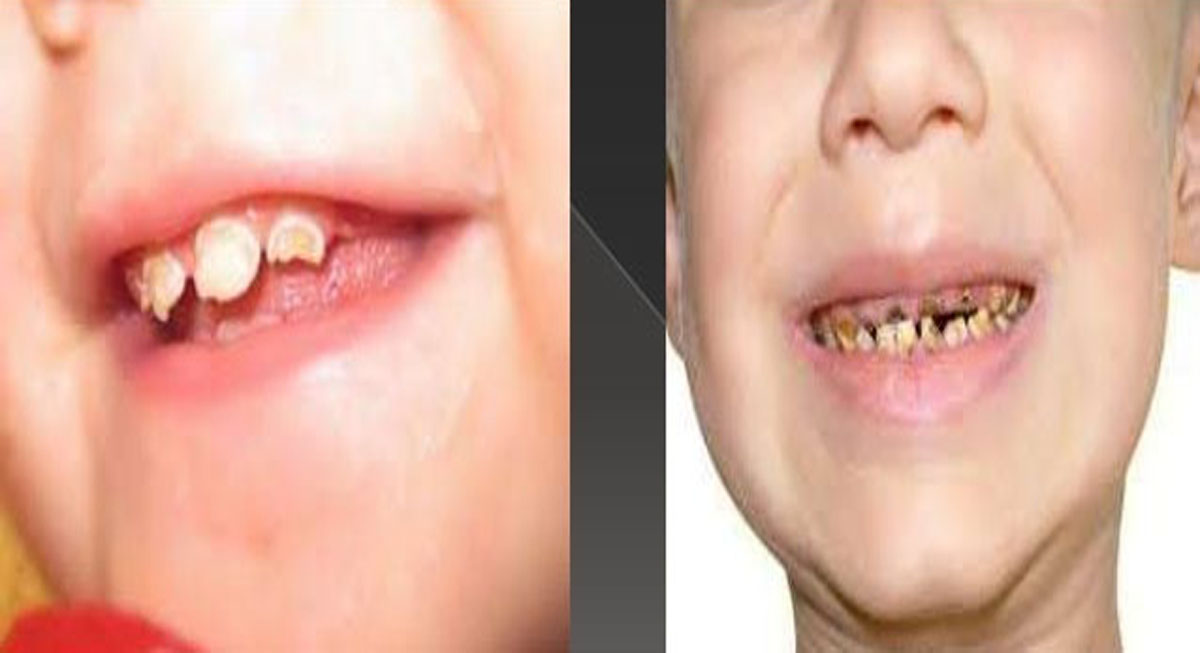Dr.Vanya Vasudeva
Baby teeth are temporary teeth but they are important for your child. They are still susceptible to caries. Tooth caries in infants (newly born) and toddlers (1-3 yrs. child) are referred as Baby Bottle tooth decay or Early childhood caries or Nursing bottle syndrome. Children need strong, healthy teeth to chew their food, speak and have a good-looking smile.
Causes of Baby bottle tooth decay
Baby Bottle Tooth Decay most often occurs in the upper front teeth, but other teeth may also be affected. The exposure of the baby’s teeth to drinks that contain sugar. Tooth decay can occur when the baby is put to bed with a bottle, or when a bottle is used as a pacifier for a baby. If breastfed infant fall asleep with unswallowed milk in their mouth, they are also at a risk for tooth decay. Bacteria in mouth feed on the sugars causing tooth decay. Tooth decay is a disease that can begin with cavity-causing bacteria being passed from the mother to the infant. These bacteria are passed through the saliva. When the mother puts the baby’s feeding spoon in her mouth, or cleans a pacifier in her mouth, the bacteria can be passed to the baby. If your infant or toddler does not receive an adequate amount of fluoride, they may also have an increased risk for tooth decay.
Signs of baby bottle Caries
Caries can appear as dark or brown or brown spot on the tooth. If decay worsen, children experience pain and swelling. children may experience unpleasant sensation during eating especially hot and cold. parents should pay special attention to these kinds of complaints and consult your dentist.
Preventing baby bottle caries
• Try not to share saliva with the baby through use of common spoon or liking pacifiers. After feeding wipe the gums with clean gauze pad or wash cloth.
• When your child’s teeth come in, brush them gently with child size toothbrush of fluoride toothpaste until the age 3 to 6.
• Supervise brushing until your child learn to spit and not swallow the toothpaste, usually not before he or she is 6 or 7.
• Place only milk or breast milk in bottle. Avoid filling the bottles with liquids such as sugar water, juice or soft drinks.
• Encourage your child to drink from cup by his or her first birthday.
• Encourage healthy eating habit.
• If you are expecting, it’s important to have a balanced diet. It will affect the development of your baby including teeth. A baby’s teeth begin to develop between the 3rd and 6th month of pregnancy. Have sufficient quantity of nutrients especially vitamin A, C, D, proteins, calcium.
• When your child’s first tooth appears, talk to your dentist about scheduling the first dental visit.
Trending Now
E-Paper


